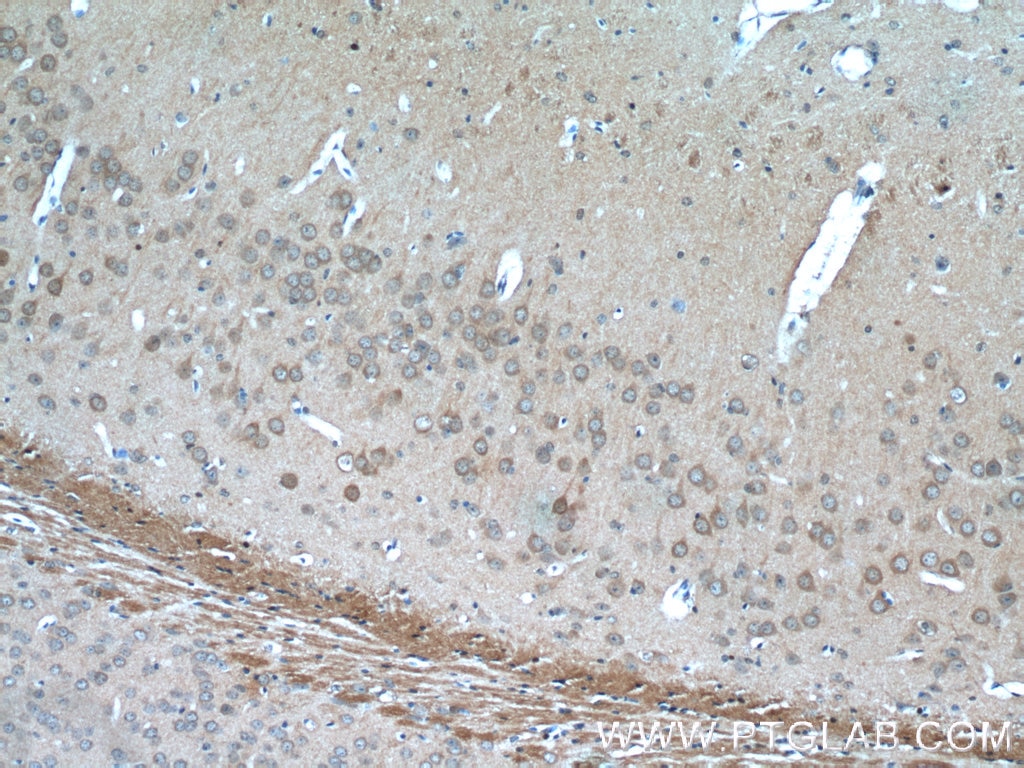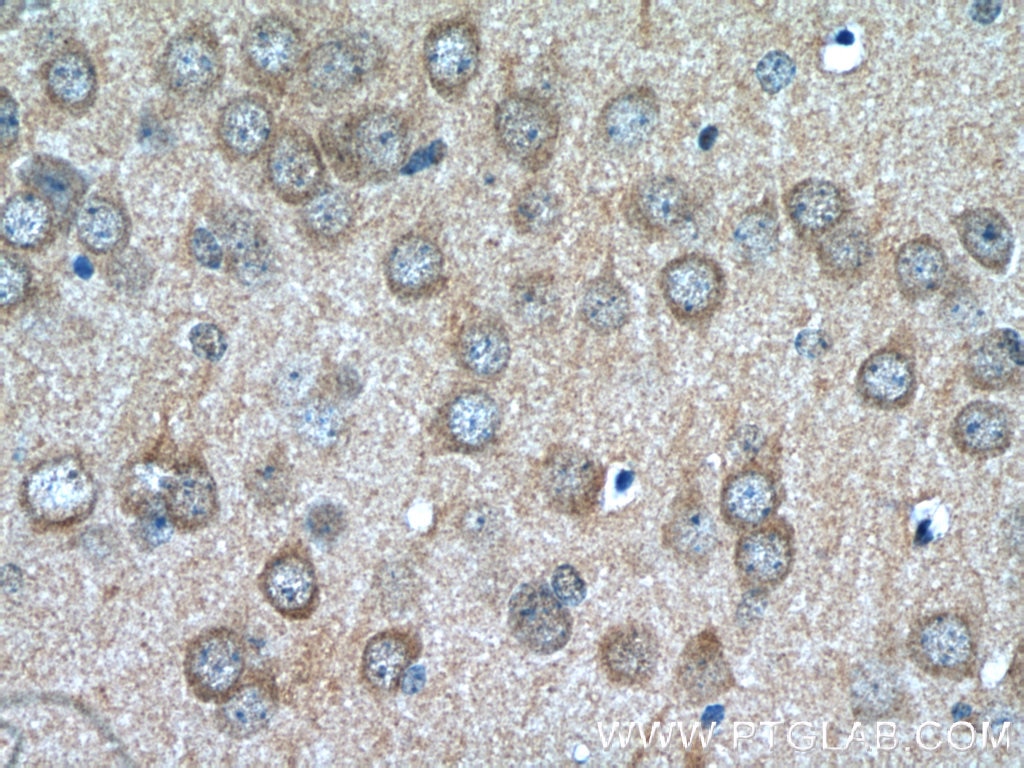GPR139-Specific Polyklonaler Antikörper
GPR139-Specific Polyklonal Antikörper für IHC, ELISA
Wirt / Isotyp
Kaninchen / IgG
Getestete Reaktivität
human, Maus, Ratte
Anwendung
IHC, ELISA
Konjugation
Unkonjugiert
Kat-Nr. : 20083-1-AP
Synonyme
Galerie der Validierungsdaten
Geprüfte Anwendungen
| Erfolgreiche Detektion in IHC | Maushirngewebe Hinweis: Antigendemaskierung mit TE-Puffer pH 9,0 empfohlen. (*) Wahlweise kann die Antigendemaskierung auch mit Citratpuffer pH 6,0 erfolgen. |
Empfohlene Verdünnung
| Anwendung | Verdünnung |
|---|---|
| Immunhistochemie (IHC) | IHC : 1:20-1:200 |
| It is recommended that this reagent should be titrated in each testing system to obtain optimal results. | |
| Sample-dependent, check data in validation data gallery | |
Produktinformation
20083-1-AP bindet in IHC, ELISA GPR139-Specific und zeigt Reaktivität mit human, Maus, Ratten
| Getestete Reaktivität | human, Maus, Ratte |
| Wirt / Isotyp | Kaninchen / IgG |
| Klonalität | Polyklonal |
| Typ | Antikörper |
| Immunogen | Peptid |
| Vollständiger Name | G protein-coupled receptor 139 |
| Berechnetes Molekulargewicht | 41 kDa |
| GenBank-Zugangsnummer | NM_001002911 |
| Gene symbol | GPR139 |
| Gene ID (NCBI) | 124274 |
| Konjugation | Unkonjugiert |
| Form | Liquid |
| Reinigungsmethode | Antigen-Affinitätsreinigung |
| Lagerungspuffer | PBS mit 0.02% Natriumazid und 50% Glycerin pH 7.3. |
| Lagerungsbedingungen | Bei -20°C lagern. Nach dem Versand ein Jahr lang stabil Aliquotieren ist bei -20oC Lagerung nicht notwendig. 20ul Größen enthalten 0,1% BSA. |
Hintergrundinformationen
GPR139, also named as GPRG1 and PGR3, belongs to the G-protein coupled receptor 1 family. It is an orphan receptor. GPR139 seems to act through a G(q/11)-mediated pathway. The antibody is specific to GPR139.
Protokolle
| Produktspezifische Protokolle | |
|---|---|
| IHC protocol for GPR139-Specific antibody 20083-1-AP | Protokoll herunterladen |
| Standard-Protokolle | |
|---|---|
| Klicken Sie hier, um unsere Standardprotokolle anzuzeigen |



